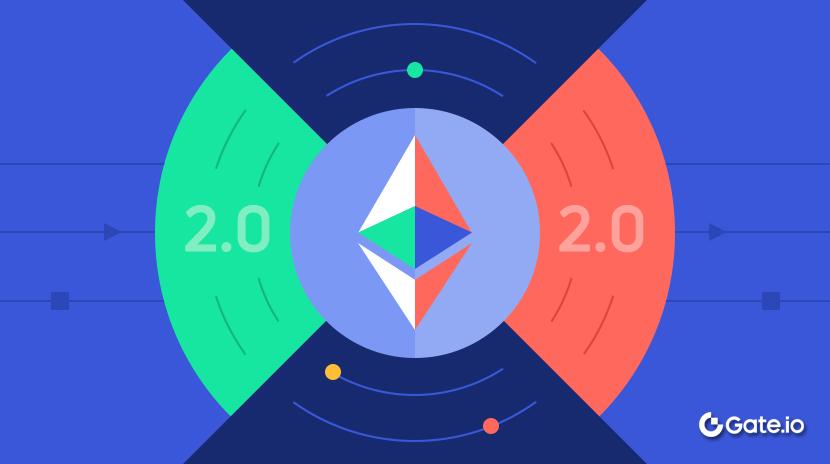The Rise of the Sovereign Individual: From ‘On-Chain Identity’ to DeSoc Under Competitive Governance
Introduction: The Eternal Migration—A Journey of Freedom from Geographic Frontiers to the Digital Realm
The freedom to migrate is humanity’s oldest and most fundamental right. Before nation-states and fixed borders, tribes and families could relocate freely in pursuit of survival and safety, seeking better environments. Migration operated as a feedback mechanism on power—it did not eradicate authority, but ensured it could always be replaced.
The advent of agrarian civilization and the rise of states curtailed this freedom: populations became tied to land, and power tethered individuals to their birthplace through “irrevocable authorizations.” The social contract shifted from dynamic reciprocity to static constraint, making migration prohibitively expensive for individuals and rendering power difficult to reclaim.
Still, the quest for individual freedom persisted, fueling two major trends:
- Vertical escape: Individuals immigrate in search of freer, more prosperous, law-based societies, enabling active choice of governance and services.
- Horizontal federation: Nation-states merge to obtain higher-level public goods, expanding mobility rights and market boundaries.
Both trends reflect a core aspiration: people continually strive for environments where “voting with their feet” is more accessible and efficient.
Now, blockchain technology—especially DeSoc on Ethereum—is paving a third pathway: the creation of an entirely new digital domain. Here, the right to “vote with your feet” is technologically and affordably restored to every individual.
This article contends that DeSoc, starting from “on-chaining humanity,” represents the latest chapter in our age-old migration toward freedom in the digital era. It promises the ultimate deconstruction of “irrevocable authorization” and accelerates civilization’s evolution into the Bit Age.
Identity Layer—From “Bare Data” to “Sovereignty with the Individual”
1. Theoretical Foundation: From SBT to the Vision of Social Composability
Vitalik Buterin, in works such as “Decentralized Society: Finding Web3’s Soul” and “What Do I Think of Biometric Proof of Identity?,” laid the theoretical foundation for the next generation of identity systems. His “Soul-Bound Identity” (SBT) concept centers around SBTs—not as financial assets, but as non-transferable credentials encapsulating an individual’s social history, credit, and contributions. The ultimate goal is social composability: every unique “person” possesses an identifiable, trusted, and incentivized social foundation on-chain.
2. Technical Architecture: Sovereign Identity Stack and Standardization Progress
The vision of “on-chaining humanity” is moving from theory to practice through a series of Ethereum community standards (EIP/ERC). At its core is a three-layer sovereign identity stack, driven by community consensus:
2.1 DID: The Root of Sovereignty and Standardized Identity Anchor
Decentralized Identifiers (DIDs) compliant with the W3C DID standard empower individuals to create and fully control their “root identity.” On Ethereum, this is actualized via EIP-4361 (Sign-In with Ethereum, SIWE), which allows users to log into third-party applications using their Ethereum accounts, decentralizing authentication and marking a pivotal step for individual identity sovereignty. EIP-712 (structured data signatures) further secures and streamlines user experience for DIDs when signing complex, human-readable off-chain statements such as identity credentials.
2.2 Zero-Knowledge Proof: Privacy Shield and Verifiable Credential Engine
Zero-knowledge proofs (ZK) serve as the privacy-enhancing layer of the identity stack, allowing claims (like “I am over 18”) to be verified without revealing underlying data (like date of birth). While ZK is a cryptographic primitive, its use in identity is advancing through proposals like ERC-5833 (privacy compliance for Soul-Bound Tokens), tackling compliance and privacy challenges for SBTs.
2.3 SBT: The Soul of Society and On-Chain Résumé Container
SBTs, as data containers and social record modules, are being defined and refined through several ERC proposals. While inspired by ERC-721 (NFT standard), their defining “non-transferability” is enforced via extensions like ERC-4973 and ERC-5192 (Minimal Soul-Bound Token), both binding tokens and metadata to identities. ERC-1155 (multi-token standard) is often used for efficiently issuing and managing large, composable sets of SBT credentials, enabling programmable social DNA for individuals in the digital world.
This technical stack—DID (EIP-4361/712) + ZK (privacy enhancement) + SBT (ERC-4973/5192/1155)—forms the standardized, interactive foundation that takes DeSoc from whitepaper to deployable smart contracts.
3. Ecosystem in Practice: Early Map of On-Chain Personality
Ethereum’s identity experiments are currently characterized by “fragmented exploration.”
Several pioneering projects are translating abstract identity theory into concrete digital personality networks:
- Lens Protocol / Farcaster: Put social graphs on-chain, making relationships and influence portable and verifiable assets.
- Worldcoin: While controversial, its biometric verification of “human uniqueness” highlights one approach to resisting Sybil attacks and achieving universal identity allocation.
- Proof of Humanity / Idena: Use different “proof of humanity” mechanisms to distinguish real individuals from fake identities on-chain, preserving DeSoc’s authenticity.
- Gitcoin Passport / ENS: Aggregate on-chain contributions, domain identities, and reputation credentials to build quantifiable social capital profiles.
These initiatives have made breakthroughs in isolated domains—social, identity, biometrics—but have produced “multi-source reputation fragments” rather than the “composable digital personality” DeSoc aspires to.
In this context, efforts like Credinet stand out. Rather than describing isolated attributes, they integrate tools like MACI (verifiable computation for anti-collusion) to build digital identity frameworks that let users carry and prove multi-dimensional credit fragments. Starting from multiple ZK proof modules, these projects create sustainable, verifiable, and composable “Lego-like” identity profiles, aiming for “unified identity + fragmented rights + privacy resilience + decentralized governance.”
4. Real-World Drivers: From Industry Pain Points to Civilizational Infrastructure
Building decentralized identity is more than a technical evolution—it’s a pressing necessity for blockchain’s real-world development.
Industry drivers: Advanced financial applications—insurance, credit, decentralized governance—depend on trusted identity for precise risk pricing and incentive alignment.
Civilizational drivers: In Ethereum’s grand narrative, DeSoc is not just a DeFi extension but a paradigm revolution in social structure. Reliable identity infrastructure forms the bedrock of this new civilization.
Competitive drivers: The industry’s next growth wave should move beyond DeFi’s zero-sum games, focusing on identity-layer infrastructure with positive externalities and network effects, leveraging Ethereum’s unique, trustworthy neutrality.
Conclusion: When an individual’s credit, abilities, and network become portable, freely migratable digital assets, humanity regains a critical freedom—migration—in the digital world.
Thus, building the identity layer is far more than a technical upgrade. It is the ultimate confirmation of personal rights and marks Ethereum civilization’s historic pivot from a “capital contract” to a “social contract.” From here, individuals are no longer prisoners of algorithms, but true sovereign nodes in the on-chain world.
The establishment of this identity layer enables “humans” to become unique, fully documented digital entities, providing a trustworthy atomic unit for all future social and economic activity.
Economic Layer: Ecological Transformation from “Financial Lego” to “Social Lego”
As trusted, robust digital identities become reality, credit-based market systems emerge. Individuals move beyond geographic constraints, evolving from “digital nomads” to “digital citizens,” living and creating in new economies built on algorithmic trust.
3.1 Credit as Capital: The Rise of Personality-Based Finance
With trustworthy identity as the norm, it becomes possible to construct financial markets based on personality credit.
- DAO members may issue “reputation bonds” using SBTs—debt instruments backed by future labor or contributions;
- Open-source developers can secure “trust loans” based on their contribution history;
- High-reputation communities may issue stablecoins backed by collective credit.
Financial barriers are dismantled. Trust is defined by algorithms and real-time behavior. Finance returns to its core—quantifying social trust. No longer exclusive to capital, financial activity becomes a natural extension of personal credit.
3.2 Reputation as Productivity: The Birth of the Idea Market
When trustworthy identities encapsulate rich personal histories, a new “idea market” is unlocked. Every creation, interaction, and evaluation accumulates as the producer’s reputation portfolio. Knowledge becomes securitized, influence becomes investable, collaboration becomes quantifiable. In this market, the most trusted become the most productive. Thus, a “market for ideas,” where trust is the clearing unit, emerges.
3.3 Identity as Institution: Bringing the Physical Economy On-Chain
Trusted identity frameworks provide an institutional bridge between physical and on-chain economies.
Organizations—companies, communities—can map legal structures to on-chain sovereign identities, allowing smart contracts to automate equity, governance, and asset management.
- DAO-ification of companies: Equity and voting rights represented by NFT/SBT.
- Financialization of communities: Governance and profit distribution encoded in code.
This marks the shift from “legal trust” to “algorithmic trust,” laying a credible foundation for bringing reality on-chain.
3.4 Economic Paradigm Shift: Trust-Driven Order and Endogenous Trust
When trustworthy individuals become the economic base unit, the entire paradigm shifts: transaction costs approach zero, while malicious behavior costs skyrocket.
- Transaction cost collapse: Trust becomes endogenous
On-chain identity and credit systems eliminate information asymmetry, trust deficits, and fulfillment challenges. Trust shifts from costly external expense to an inexpensive, algorithmic feature, transforming society from high- to low-friction.
- Malicious behavior costs soar: Credit as a permanent constraint
SBTs’ non-transferability permanently binds people to their actions. One act of fraud can damage on-chain credit, shutting off cooperative opportunities until repaired. Rationally, maintaining credit becomes the only optimal strategy.
- Trust civilization emerges: From rule of law to autonomous governance
As transaction costs near zero and bad behavior becomes infinitely costly, social order shifts from external enforcement to internal constraint. Rule of law evolves into “self-discipline via trust,” and regulation gives way to “reputation restriction.” Society moves from a “contract-based” to a “trust-based” civilization.
3.5 The Rise of Digital Nomads
As “people” become trusted, multidimensional digital entities, “digital nomads” truly evolve into digital citizens, free from territorial limits. Their Universal Basic Income (UBI) comes from two main sources:
Data assetization income
An active, trusted on-chain identity is itself a data asset generating sustainable yield. Individuals can, while preserving privacy (e.g., with zero-knowledge proofs), license their data for AI training, market analytics, and more, earning stable, passive data revenue.
Node network income
By providing core network resources (PoS staking, DePIN device storage/computation), individuals earn network maintenance rewards. Together with data asset income, this forms the economic security foundation in DeSoc.
Governance Layer: From “Full Agency” to “Bitwise Authorization”
The essence of power is the possession and control of others’ rights. Since the dawn of political society, it has stemmed from the ceding of individual rights.
In imperial eras, this ceding was once-for-all and irreversible—rights were transferred for generations. In constitutional times, rights are ceded according to electoral cycles.
Both models share long-term and comprehensive surrender of rights.
When rights are given up entirely and permanently, individuals lose their leverage to check power. Freedom of migration thus becomes the ultimate defense against power.
Now, as individual rights become decomposable, composable, and portable on-chain data, no longer trapped by geographic borders, this defense is permanently activated by technology. The power structure faces a tectonic shift: power moves from monopoly to competition, from coercion to service. RWO/RWE (Real World Anything/Everything) will be redefined and rapidly evolve under this paradigm.
4.1 DAOs: Institutional Experiments as “Digital City-States”
Every DAO, whether for protocol management, community operation, or investment, acts as a micro “digital city-state,” featuring:
- Written constitutions: Governance rules and charters embodied as smart contracts;
- Independent treasuries: Community funds managed by code;
- Citizen bodies: Rights-bearing participants as token holders and contributors.
4.2 Fine-Grained Freedom: “Chain Migration” and Multi-Dimensional Identity Allocations
In the physical world, immigration is a bundled, high-cost, one-time shift of political, economic, and cultural affiliation.
Within DeSoc, “chain migration” enables unbundled, granular freedom. An individual can enjoy high reputation in technical DAOs via code contributions, while also being a core member in cultural DAOs for artistic merit. They may exercise governance rights in like-minded DAOs and allocate assets in DAOs offering superior financial services.
This ability to allocate multi-dimensional rights across digital city-states marks the first time humanity has achieved low-cost, comprehensive freedom of choice.
4.3 Governance Competition: The “Attractiveness Contest” of Institutions and Culture
The near-zero cost of “chain migration” transforms DAO competition into an all-encompassing “institutional attractiveness contest.”
To attract and retain high-value digital citizens, DAOs must continuously enhance their institutional offerings:
- Political appeal: Greater transparency, fairer voting, more reversible authorization;
- Economic appeal: Better tax structures, more earning opportunities, stronger public services;
- Cultural appeal: More inclusive communities, sharper values, more vibrant creative ecosystems.
This competition will spark unprecedented institutional innovation, reminiscent of the prosperity of historic free city-states. Ultimately, governance quality and cultural vitality will determine the fate of digital city-states.
Systemic Integration: The Emergence of DeSoc—A Dynamic, Organic Social Ecosystem
When people are fully affirmed on-chain—identity, credit, and governance participation all evolving as composable data—society becomes dynamic and emergent.
It no longer depends on central planning or grand design, but arises naturally from billions of individual choices and smart contract-based collaboration.
DeSoc’s essence is this bottom-up order-formation mechanism.
- Individual level: Each person, as a sovereign individual, holds a digital identity encompassing all rights, secures baseline income from data assets and network participation, advances via proof of contribution, and enjoys unmatched autonomy and security.
- Governance level: DAOs compete for talent and attention, driving continuous governance innovation and forming an “open market for governance.”
- System level: Society is alive and organic. Power is tamed (via reversible authorization), innovation is incentivized (via proof of contribution), and individual dignity and economic autonomy are fundamentally protected.
In this system, power becomes temporary authorization, institutions become updatable code, and, for the first time, the social contract can evolve in real time.
This is a reboot of civilization: a society no longer constrained by territory, identity, or system, spontaneously reborn in the world of bits.
Conclusion: Toward Self-Ownership, Self-Governance, and Self-Enjoyment in the Bit Age
The “Blockchain Civilization Trilogy” converges here, forming a robust logical loop:
We have identified the tool to tame power—reversible authorization—transforming power from monopoly into a service manageable by individuals.
We have laid the foundation for civilization—Ethereum’s credible neutrality, global consensus, and programmability—providing DeSoc with a permissionless, trustless infrastructure.
We have outlined a blueprint for a new society—beginning with “on-chaining humanity,” progressing through identity affirmation, economic autonomy, and governance competition, and culminating in a human-centric digital civilization.
This marks a profound migration in the fabric of civilization: from the atom age, built on matter and energy, to the bit age, built on data and information.
The atom age was defined by geographic binding, resource scarcity, and centralized power. Social structures and institutions were bounded by the “logic of atoms”—all things had place and weight, migration was hard.
The bit age paradigm is global mobility, infinite replication, and decentralized power. All elements—identity, assets, trust, relationships—are deconstructed into programmable, composable, verifiable, revocable, and freely migratable bit units.
Now, “identity” shifts from full agency to personal ownership;
“Governance” shifts from monopolistic management to autonomous service;
“Benefit” shifts from capital monopoly to creator self-enjoyment.
Lincoln’s Gettysburg vision—“of the people, by the people, for the people”—gains a new digital meaning, transforming from grand collective narrative to the daily reality of each sovereign individual: “of myself, by myself, for myself.”
This is—the Bit Age.
Reflections
- If “on-chaining humanity” becomes mainstream (identity, history, and credit all on-chain), will your most essential freedoms be amplified or diminished? Which freedoms expand (choice, movement, participation)? Which ones quietly contract (right to be forgotten, to start over, to make mistakes anonymously)?
- Within the “sovereign individual” narrative, do you fear more that others won’t see you as a person, or that the system will take your computability as a person too seriously?
Statement:
- This article is reprinted from [LXDAO]. Copyright belongs to the original author [LXDAO]. If you have any questions about the reprint, please contact the Gate Learn team, and the team will promptly address them according to relevant procedures.
- Disclaimer: The views and opinions expressed in this article are solely those of the author and do not constitute investment advice.
- Other language versions of this article are translated by the Gate Learn team. Without referencing Gate, you may not copy, distribute, or plagiarize the translated content.
Related Articles

The Future of Cross-Chain Bridges: Full-Chain Interoperability Becomes Inevitable, Liquidity Bridges Will Decline

Solana Need L2s And Appchains?

Sui: How are users leveraging its speed, security, & scalability?

Navigating the Zero Knowledge Landscape

What is Tronscan and How Can You Use it in 2025?
